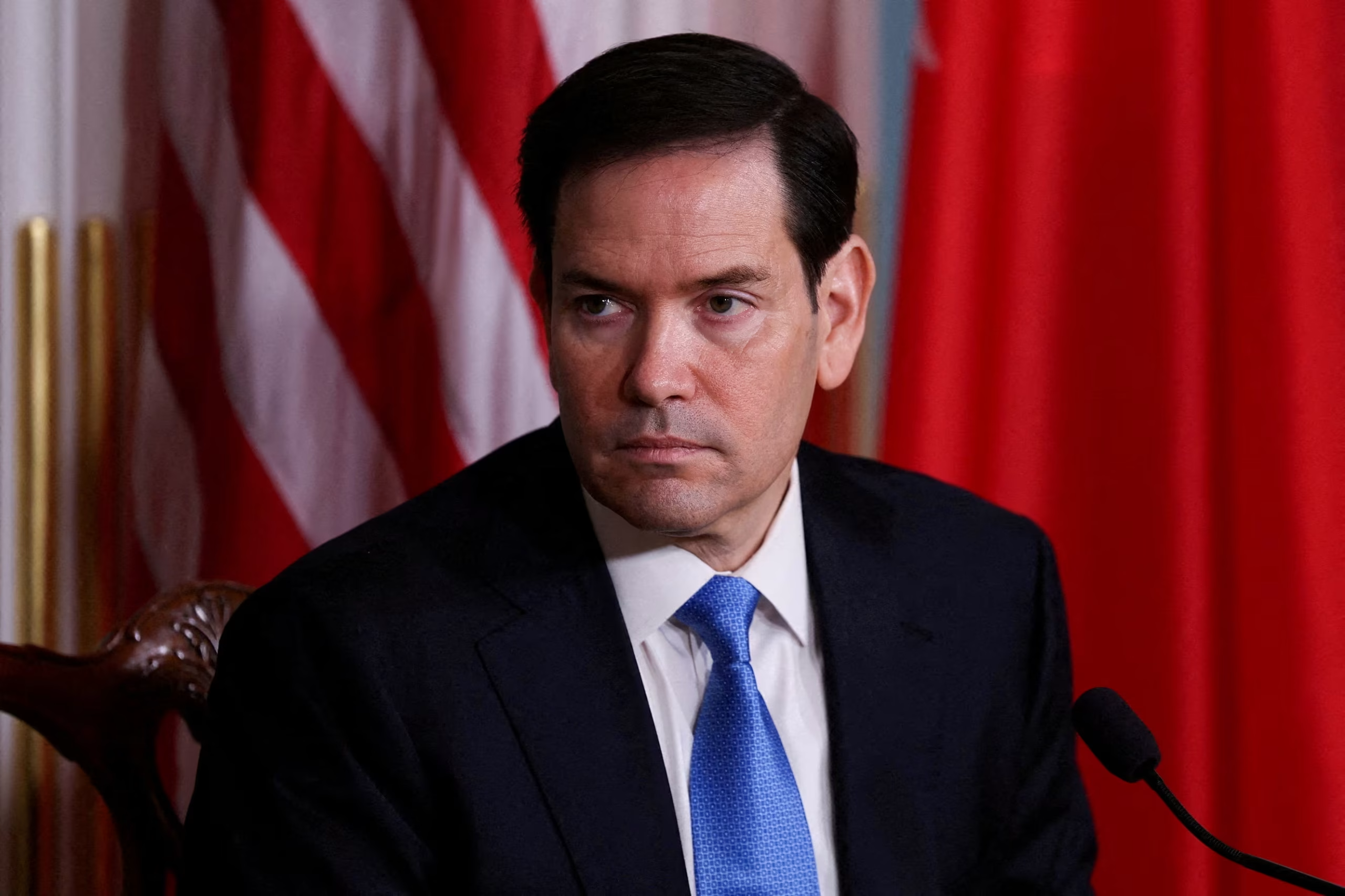
Marco Rubio’s threat to “blow up foreign crime groups” signals a new, aggressive phase of the US war on cartels. Image credit: Reuters
Blow Up Foreign Crime Groups: America’s Toughest Stand Yet
(The Post News) – In a startling escalation, Blow Up Foreign Crime Groups became the phrase on everyone’s lips after US Secretary of State Marco Rubio declared that the United States will not hesitate to use military force against international cartels. His statement, made during a high-profile visit to Ecuador, represents one of the most aggressive policy positions in Washington’s decades-long battle with narco-trafficking networks.
Rubio did not mince words, “Now they’re gonna help us find these people and blow them up, if that’s what it takes,” he said, speaking alongside Ecuadorian officials. “The president has said he wants to wage war on these groups because they’ve been waging war on us for 30 years and no one has responded. But there’s no need to do that in many cases with the friendly governments, because the friendly governments are going to help us.”
US War on Cartels Intensifies After Caribbean Strike
The US War on Cartels entered a new chapter this week when American forces carried out a deadly strike on a vessel in the Caribbean Sea, reportedly killing 11 drug traffickers. While the Pentagon has not yet released their identities, President Donald Trump quickly linked the operation to Venezuela’s Tren de Aragua gang.
Rubio’s announcement that Los Lobos and Los Choneros — Ecuador’s two largest gangs — would be formally designated as foreign terrorist organisations (FTOs) sent shockwaves through Latin America.
This FTO designation allows Washington to freeze cartel assets, prosecute their members under terrorism statutes, and collaborate with foreign militaries without legal limitations.
International law experts, however, have raised concerns. BBC Verify spoke with legal analysts who argue that Tuesday’s strike may have violated maritime and human rights law, since no due process was observed before the lethal action.
Ecuador Drug Violence Fuels Regional Instability
One of Rubio’s key arguments is that Ecuador Drug Violence has reached catastrophic levels. The country, once considered one of South America’s safest, has seen homicide rates quadruple over the past three years. Government data suggests 70% of the world’s cocaine now transits through Ecuador, making it a global choke point for drug trafficking.
Ecuadorian President Daniel Noboa has openly called his campaign against gangs a “war” and urged international military support. “I would be glad if the US considered Los Lobos and Los Choneros as terrorist groups because that’s what they really are,” Noboa said in a BBC interview. “This is not just Ecuador’s fight. This is a fight for global security. We welcome US and European cooperation, and we are even exploring the return of foreign military bases to strengthen our defense.”
Billions in Security Aid and Drone Technology
Washington is backing words with money. Rubio announced $13.5 million in security assistance and $6 million in drone technology for Ecuador, describing it as a “game-changer” for surveillance and interdiction. “This is not just about helping Ecuador,” Rubio said. “This is about securing our borders, stopping the poison before it reaches our communities, and saving American lives.”
The US hopes that enhanced intelligence-sharing and drone-based monitoring will help Ecuador track cartel movements more effectively, preventing massive cocaine shipments from reaching US ports.
Geopolitical Repercussions of a Global Narco-War
Critics warn that Rubio’s Blow Up Foreign Crime Groups strategy could trigger a dangerous precedent. Venezuela has already accused Washington of provocation after two of its military aircraft reportedly flew near a US vessel.
Some analysts fear a wider conflict. “If you start bombing targets linked to cartels on foreign soil, you risk violating sovereignty and escalating into a regional war,” said Dr. Laura Méndez, a security expert at FLACSO University. “While the US has every right to protect itself, it must balance this with international law and diplomacy.”
Migration, Asylum, and Human Rights Concerns
Soaring violence has forced thousands of Ecuadorians to flee northward. US immigration law experts are now grappling with the question of whether gang victims will qualify as refugees or be criminalised for paying cartel extortion fees — which could technically count as “material support for terrorism” under US law. “This designation is a double-edged sword,” said Carlos Rivas, an immigration attorney in Miami. “On one hand, it recognises victims as survivors of terrorism, which could strengthen asylum claims. On the other hand, if you were forced to pay a gang to spare your life, that might be interpreted as aiding terrorists. This legal ambiguity could leave thousands in limbo.”
While Ecuador’s government has welcomed US action, Mexico has remained silent. Some US lawmakers have praised Rubio’s hardline stance, while others have cautioned against “trigger-happy foreign policy.”
This issue ties into broader US foreign policy priorities, as seen in other operations targeting drug cartels in Mexico and fentanyl suppliers in Asia.
Rubio’s remarks have made it clear that the US War on Cartels is entering its most aggressive phase since the 1980s. Whether this strategy will deter gangs or fuel more violence remains to be seen.



